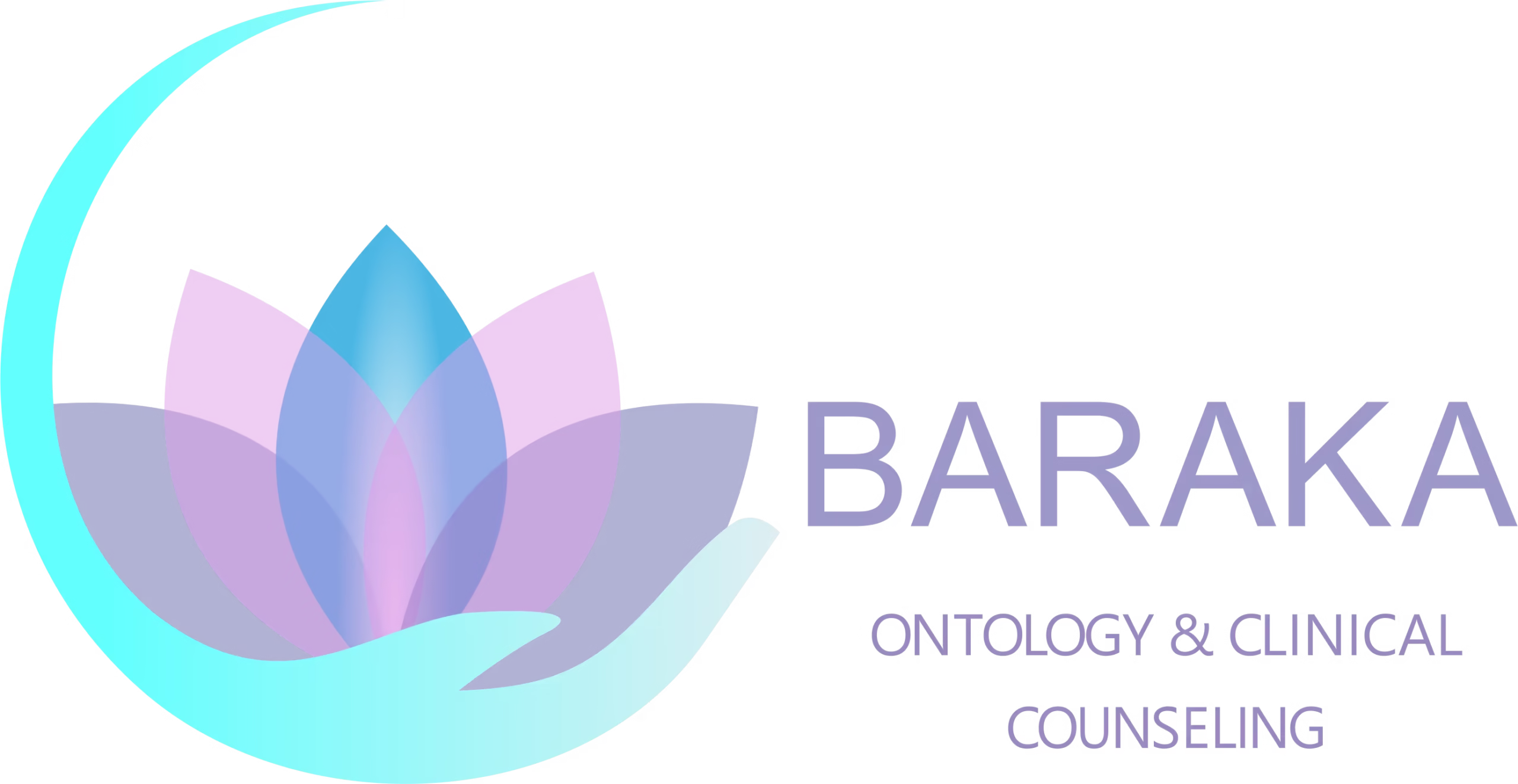What Does Ontology Have to Do With Mental Health?
Ontology might sound like abstract philosophy — a world of “being” and “existence.”
But beyond theory, it holds real-life implications for how we understand and support mental wellness.
Exploring ontology in mental health gives us deeper insight into what it means to be human, improving how we heal and connect.
Ontology is a fascinating branch of philosophy that delves into the nature of being, existence, and reality. While it might initially seem abstract, ontology holds practical implications, particularly in the realm of mental health. By exploring ontological approaches, we can gain profound insights into mental health frameworks, thereby enhancing our understanding of mental wellness and improving therapeutic outcomes.

Ontology is a philosophical inquiry that seeks to explore questions regarding what entities exist or can be said to exist. It examines how these entities can be organized, related within a hierarchy, and subdivided according to their similarities and differences. Ontology is foundational to numerous fields, including computer science, information science, and artificial intelligence. However, its influence on mental health is particularly intriguing and worthy of deeper exploration.
Why Should Therapists Care About Ontology?
At its core, ontology explores fundamental questions about existence and reality. It delves into the concepts of being, essence, and the nature of entities. Understanding these concepts allows us to comprehend the building blocks of reality and how they relate to human perception and experience. These philosophical inquiries provide a framework for examining mental health as it relates to our understanding of being and existence.
Ontology has a rich historical background, tracing back to ancient philosophers like Plato and Aristotle. Over the centuries, ontology has evolved, influencing various philosophical movements and adapting to contemporary issues. This historical evolution provides a context for understanding how ontological principles are applied in modern mental health practices. By tracing its development, we can appreciate the depth and breadth of ontology’s impact on mental health.
From Philosophy to Psychology: How Ontology Shapes the Mind
Ontology’s influence extends beyond philosophy, impacting diverse fields such as linguistics, cognitive science, and artificial intelligence. These interdisciplinary connections highlight the versatility of ontological principles and their applicability to mental health. By examining how ontology intersects with other disciplines, we can gain a more comprehensive understanding of its role in shaping mental health frameworks.

In the realm of mental health, ontology serves as a valuable tool for understanding how different mental states and conditions relate to one another. By mapping out these relationships, mental health professionals can develop more robust frameworks for diagnosing and treating mental illnesses. Ontology provides a lens through which we can examine the complexities of mental health and enhance our therapeutic approaches.
Can Mental Health Be Mapped? Ontology Says Yes
Ontology allows for the creation of detailed maps of mental health conditions, illustrating the relationships and distinctions between various disorders. By utilizing these ontological maps, professionals can gain insights into the nuanced connections between mental health issues, facilitating more accurate diagnoses and targeted treatment plans. This mapping process helps in identifying underlying patterns and commonalities among mental health disorders.
Ontology aids in dissecting and understanding the constructs that define mental health. By analyzing the nature of mental health constructs, professionals can develop a more precise language and framework for discussing mental health issues. This understanding is crucial for developing effective interventions and therapies that address the root causes of mental health conditions.

Rethinking Diagnosis: What If Mental Health Isn’t Just About Symptoms?
The ontological exploration of mental health has significant implications for diagnosis and treatment. By examining the ontological underpinnings of mental health conditions, professionals can refine diagnostic criteria and develop more effective treatment strategies. This ontological perspective encourages a comprehensive approach to mental health care, considering not only symptoms but also the broader context of an individual’s experience.
Mental health frameworks are systems employed by professionals to comprehend, diagnose, and treat mental health conditions. These frameworks often rely on ontological principles to structure and categorize various mental health issues. By integrating ontology into these frameworks, professionals can enhance their understanding and improve the effectiveness of mental health care.
How Ontology Creates a Common Language in Therapy
Ontology provides a structured approach to organizing mental health frameworks. By categorizing mental health conditions based on ontological principles, professionals can create coherent and comprehensive systems for diagnosis and treatment. This structured approach ensures consistency and accuracy in addressing mental health issues, leading to more effective therapeutic interventions.
One of the primary applications of ontology in mental health is the categorization of disorders. By understanding the relationships between different mental health conditions, professionals can develop more accurate diagnostic criteria and treatment plans. Ontology aids in identifying core symptoms and differentiating between similar disorders, enabling targeted interventions that address the specific needs of individuals.
Ontology plays a crucial role in developing a common language for mental health professionals. This shared understanding facilitates effective communication among doctors, therapists, and researchers. By establishing a standardized framework, professionals can exchange ideas and collaborate more efficiently, ultimately leading to improved patient outcomes and advancements in mental health research.

Seeing the Whole Person: Ontology’s Holistic Promise
With a solid ontological framework, researchers can collaborate more effectively on mental health studies. Ontology provides a common ground for comparing findings and building upon existing research. This collaborative approach fosters innovation and facilitates the development of more comprehensive and effective treatments for mental health conditions, benefiting both professionals and patients.
Could Ontology Revolutionize the Way We Treat Mental Illness?
Ontological approaches to mental health encourage a holistic and integrated perspective, emphasizing the interconnectedness of various aspects of an individual’s life. These approaches provide a comprehensive framework for understanding mental health, leading to more personalized and effective treatment plans.
The Power of Connection: Ontology and Communication in Care
Ontological approaches advocate for a holistic view of mental health, considering the individual as a whole rather than focusing solely on symptoms. By taking into account the person’s environment, relationships, and life experiences, professionals can develop treatment plans that address the root causes of mental health issues. This holistic approach leads to more personalized and effective interventions, promoting overall well-being.
Ontology emphasizes the integration of mind and body in understanding mental health. By recognizing the interconnectedness of physical and mental health, professionals can develop treatments that address both aspects. This integrated approach acknowledges the complex interplay between the mind and body, leading to more comprehensive and effective care for individuals with mental health conditions.
Ontological approaches offer new perspectives on mental illness, challenging existing assumptions and encouraging innovative treatment methods. By examining the nature of mental health conditions, professionals can develop fresh insights and approaches to care. This ontological exploration opens up possibilities for breakthroughs in mental health care, leading to improved outcomes for individuals experiencing mental health challenges.

Ontology supports the development of personalized treatment plans that consider the unique experiences and circumstances of each individual. By tailoring interventions to meet the specific needs of patients, professionals can enhance the effectiveness of mental health care. This personalized approach acknowledges the diversity of human experiences and promotes individualized care that respects the autonomy and dignity of patients.
Ontology offers practical implications for improving the diagnosis and treatment of mental health conditions. By providing a clearer understanding of the relationships between different disorders, professionals can develop more targeted and effective treatment plans. This ontological perspective enhances the quality of care and promotes positive outcomes for individuals with mental health conditions.
Ontology can significantly improve the diagnosis and treatment of mental health conditions. By offering a comprehensive understanding of the relationships between different disorders, professionals can develop more accurate diagnostic criteria and targeted treatment plans. This ontological approach leads to better patient outcomes and a higher quality of life for individuals experiencing mental health challenges.
With a focus on the individual’s unique experiences and environment, ontological approaches facilitate more personalized care. By considering the whole person, mental health professionals can tailor treatments to meet each patient’s specific needs. This personalized approach enhances the effectiveness of interventions and promotes positive therapeutic outcomes, leading to improved mental well-being.
Ontology enhances communication between mental health professionals and patients by providing a common language and framework. This shared understanding makes it easier for professionals to explain complex concepts to patients and their families, fostering better patient understanding and cooperation in their treatment plans. Improved communication leads to more effective collaboration and enhances the overall therapeutic experience.

The Ethical Side of Ontological Mental Health
Ontology contributes to advancements in mental health research by providing a structured framework for investigation and collaboration. Researchers can use ontological principles to explore new areas of study, develop innovative methodologies, and build upon existing research. This ontological approach fosters a collaborative research environment, leading to breakthroughs in understanding and treating mental health conditions.
While ontology offers valuable insights into mental health, it also presents challenges and considerations that must be addressed. These challenges highlight the complexity of applying ontological principles in mental health and emphasize the importance of ethical considerations.
One significant challenge in applying ontology to mental health is the complexity of ontological models. These models can be intricate and difficult to understand, especially for those without a philosophical background. However, with proper training and collaboration, mental health professionals can overcome these challenges and harness the insights that ontology offers, leading to improved mental health care.
Ethical considerations are paramount when applying ontology in mental health. Professionals must ensure that ontological models are implemented in a way that respects patients’ rights and dignity. This includes obtaining informed consent, maintaining confidentiality, and ensuring that interventions are conducted ethically and responsibly. By prioritizing ethical considerations, professionals can uphold the integrity of mental health care and protect the well-being of patients.

A New Era of Healing: The Future of Ontology in Mental Health
Integrating ontology into mental health practice requires careful consideration and planning. Professionals must navigate the complexities of incorporating ontological principles into existing frameworks and ensure that these approaches align with clinical practice guidelines. By thoughtfully integrating ontology into practice, professionals can enhance their understanding and improve the effectiveness of mental health interventions.
Ontology offers a unique and valuable perspective on mental health. By exploring the relationships between different mental health conditions and considering the whole person, ontological approaches can lead to more effective and personalized treatment plans. While challenges exist, the potential benefits of incorporating ontology into mental health frameworks are significant. As we continue to explore the science behind ontology, we can look forward to new insights and advancements in mental health care.
By embracing ontological approaches, mental health professionals can better understand the complexities of mental health and improve the lives of those they serve. As we continue to explore and refine these approaches, we can look forward to a brighter future for mental health care, characterized by personalized care, enhanced communication, and innovative research. Ontology provides a valuable framework for navigating the complexities of mental health, offering hope and promise for individuals and communities worldwide.

Responses